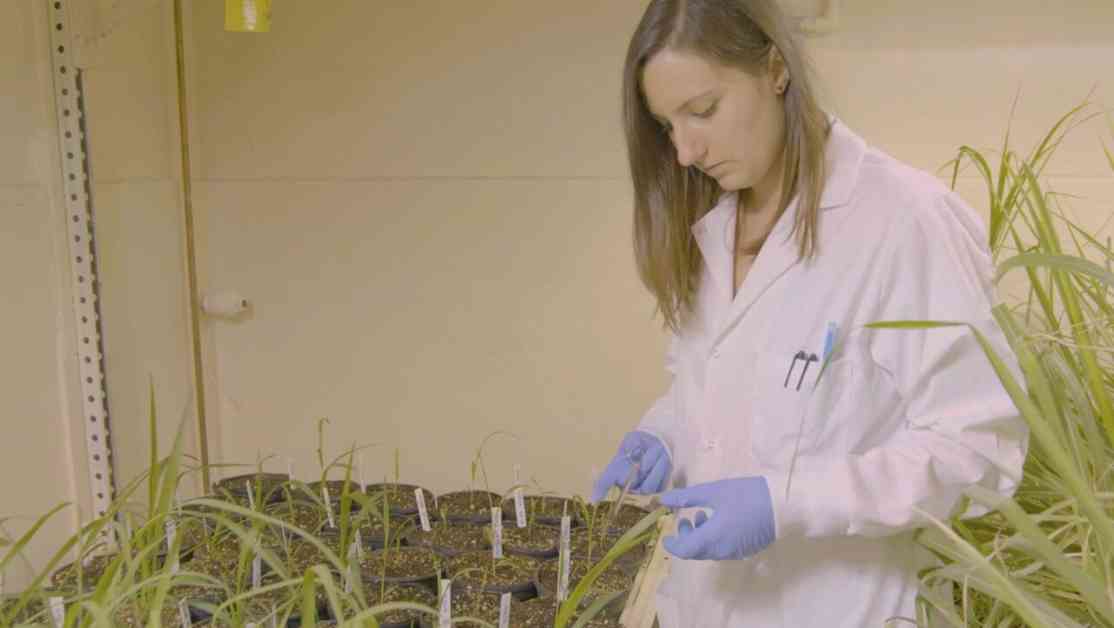Sugarcane is a crucial crop worldwide, providing a large portion of the sugar and biofuel supply globally. Despite its importance, sugarcane has a complex genome, making traditional breeding methods challenging. To address this issue, researchers from the University of Florida’s Center for Advanced Bioenergy and Bioproducts Innovation (CABBI) have turned to gene editing tools like CRISPR/Cas9 to enhance sugarcane productivity.
In a recent study published in the Plant Biotechnology Journal, the research team used CRISPR/Cas9 to adjust the leaf angle in sugarcane plants. By fine-tuning this trait, the sugarcane could capture more sunlight, leading to increased biomass production. This approach aligns with CABBI’s goal of utilizing plants like sugarcane as biofactories to produce biofuels and valuable molecules directly in their stems.
The complexity of the sugarcane genome, with multiple copies of each gene, makes CRISPR/Cas9 an ideal tool for editing specific genes. The researchers focused on the LG1 gene, which influences leaf angle and light capture in sugarcane. By editing different numbers of LG1 copies, they were able to optimize the leaf angle, resulting in enhanced biomass yield.
According to Fredy Altpeter, the lead researcher and Professor of Agronomy at the University of Florida, editing a small percentage of LG1 copies in sugarcane plants led to significant improvements in biomass yield. Field trials demonstrated that sugarcane lines with modified leaf angles showed increased biomass production, with one particular line exhibiting an 18% boost in dry biomass yield.
By enhancing sugarcane’s ability to capture sunlight through genetic modifications, the researchers achieved higher biomass yield without the need for additional fertilizers. This study not only showcases the potential of CRISPR technology in optimizing crop traits but also contributes to a deeper understanding of complex genetics and genome editing for future agricultural advancements.
The successful field trial of CRISPR-edited sugarcane highlights the promising opportunities for editing polyploid crop genomes to enhance specific traits. Co-authors of the study, including researchers Eleanor Brant, Ayman Eid, Baskaran Kannan, and Mehmet Cengiz Baloglu, collaborated on this groundbreaking research. This study sheds light on the possibilities of leveraging gene editing technologies to improve crop productivity and sustainability in agriculture.








